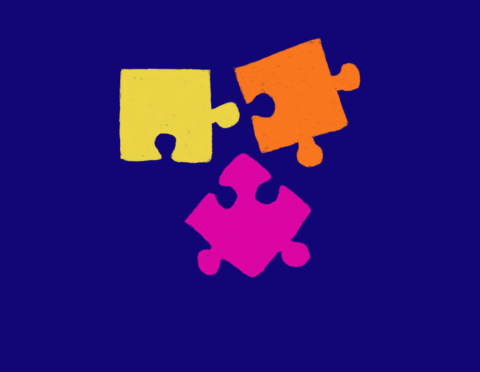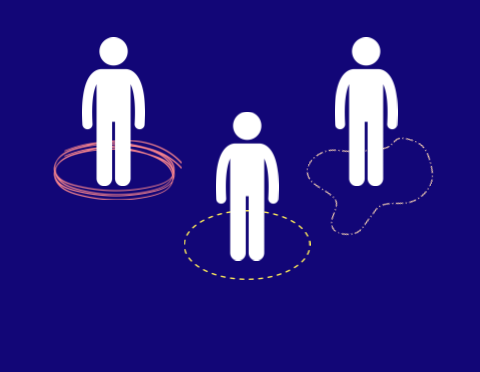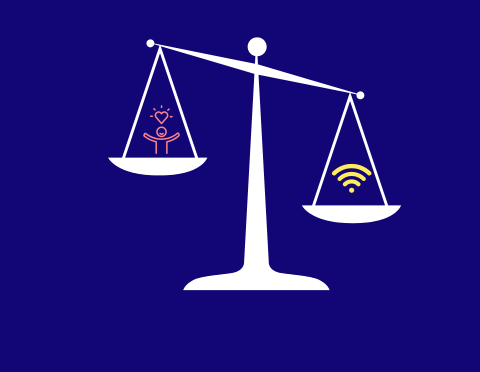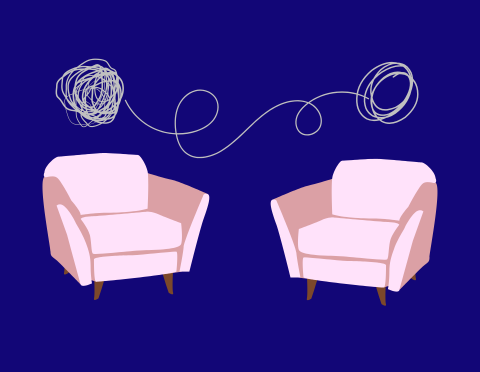How to know if the therapist is a right fit
How to Know if your therapist is the right fit for you?
5 Signs your therapist is the right fit for you
Therapy is a journey in which you and your therapist work in collaboration towards your mental and emotional wellbeing. In this process, it is important that you and your therapist are the right fit for each other. But what does that exactly mean?
Just like in a jigsaw puzzle, not every piece will fit every other piece. But when two pieces have the correct curves and edges, they fit with each other so that you can see the bigger picture. Similarly, in the journey of therapy if you and your therapist are the right fit, it facilitates the process of therapy. It increases the chances of building a good rapport with the therapist, in turn making you trust on them more. Therapy is a deeply personal process and thus, having trust is essential to building a successful therapeutic relationship.
Then the therapeutic relationship, in itself, becomes the vehicle that drives change. It’s of course a huge leap of faith, and with lax regulations in our country, it is very natural that you may have some inhibitions to reveal your vulnerable side to the therapist. But when the client and the therapist are the right fit for each other, it becomes beneficial for the therapy process. In case you don’t feel like the therapist is the right fit for you, you can always bring this up in session. This way, you can either address the issues you may have, or you may ask for a referral.
You have had a couple of sessions with your therapist. But you are still unsure of weather they are the right fit for you or not. How do you gauge that? Don’t worry, I’ve got you. Here are 5 signs to look out for that the therapist is the right fit for you.

1. You are comfortable around them
Don’t get me wrong, uncomfortable emotions do come up in therapy, that does not necessarily mean your therapist is not the right fit for you. It can be a sign that the process is working. What I mean by this is, after the initial couple of sessions, you feel a sense of comfort in opening up to them. You feel warmth and acceptance. After a session, you feel seen, heard and understood by your therapist. You want to communicate, and you feel that your therapist, too communicates with you, clarifies things that they may not know or understand, is curious in their approach and you feel like you can have open communication with them. This is one of the biggest green flags of a therapeutic relationship.
2. You don’t feel judged by your therapist
Sharing something vulnerable takes up a lot of courage. But when you do so with your therapist and you receive judgement in return, it may be sign that your therapist is not the right fit for you. This judgement may be in the form of a look, or a statement or any part of the interaction that makes you feel like your therapist is being overly critical or making an evaluation about your character, often with a negative connotation. Instead, if you open up and you feel seen, heard, validated, comforted or even scrutinised in a positive light. You are given constructive criticism that does not feel like an attack. You feel comfortable and want to share things with them, that is a great sign that you and your therapist are the right pieces if the puzzle. Therapy does involve showing you a mirror and holding you accountable, and you may not like it, but when it is done in a way that makes you think and introspect and not feel judged, it means your therapist is doing things the right way and has your best interests at heart.
3. You “click”
When you click with a person, you feel a kind of connection with them. This is important to any and all relationships. In the context of therapy, when you and your therapist “click”, it means that you are compatible and comfortable with their approach, their style of working things out with you, the way they are during your therapy sessions, their body language. You feel that your issues and concerns are addressed adequately during a session. Therapy is about you. Your therapist and share an equation, a relationship that is professional yet personal. When you click with your therapist, when you feel understood by them, when they are curious, it facilitates therapy. Your body language can also be an indicator. Do you feel yourself tense up when you approach the door of your therapist’s space or do you feel like you look forward to anther session? Does your body feel relaxed during a session? The initial sessions may feel a bit daunting, but if your therapist makes an effort to connect with you, this can be an indicator of a good therapeutic relationship.
4. They hold you accountable
You may notice that your therapist does not always agree with you. And that is okay. Your beliefs and values may not be identical to your therapist’s. After all, each person is a constellation of their genetics, their upbringing and their environment. However, it’s your therapist’s job to show you a mirror, to make you think, to question your unhealthy belief systems, in a way that does not feel attacking. So if your therapist is holding you accountable, calling you out, making you own up and hold you responsible for your beliefs, actions and thoughts. Thus, if they hold you accountable for your discipline and remind you that you are responsible for your own healing, this is a good indicator of a healthy therapeutic relationship.
5.You feel comfortable being yourself
Whether in a session or outside, you feel like you and your experiences are validated. That your beliefs, gender, culture, sexuality are honoured, even if they are different. You can communicate with them openly, even about stuff that may be uncomfortable or tough. You feel safe to be yourself, wholly and completely and can open up in that space. They don’t make you feel “othered”. They are consistent, professional, show up on time and help you help yourself. You see some progress, even if slow, in the way you feel, your moods, in the way you think. They maintain boundaries and are reliable. A therapist may bring up, sometimes, some experiences or stories from their life if they feel it is relevant. But they don’t make the session about them. You feel your body relax and look forward to sessions. All of these are signs of a healthy therapeutic relationship.
Therapy is a time consuming, deeply personal and complex process. However, it can be extremely rewarding, can make you feel better and help you improve yourself in order to live your best life. It is important to remember that while your therapist is also a person that ay make mistakes, therapy is about you. Don’t feel guilty or hesitant to being up something that doesn’t sit right with you, or something that bothers it, whether it may be something they did or said. The way they address this difference can itself also be telling. Trust your feelings. And in case you want a referral, don’t hesitate to ask. Not everyone is the right fit for everyone and that is okay. Not every therapist and client will click, just like not each piece fits with the other in a jigsaw puzzle. Give the process of therapy some time, your efforts and a chance. Sometimes, it may take multiple switches to find a therapist that’s right for you. But give it time and consistency and watch yourself bloom and become the person you always wanted to be.







